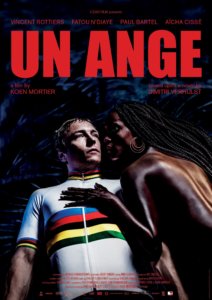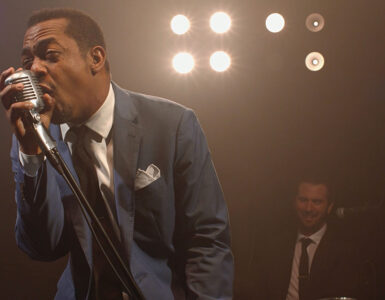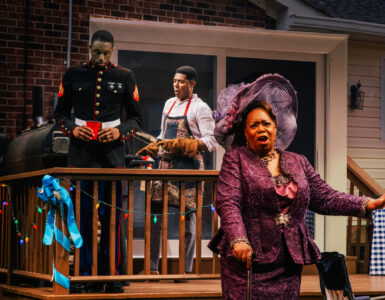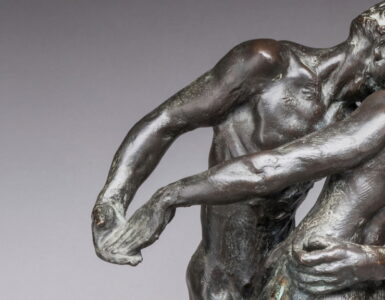Koen Mortier’s Un Ange is the slightly fictionalized story of Frank Vandenbroucke, a famous competitive Belgian cyclist and Tour De France racer whose substance abuse and emotional turmoil brought him to ruin at a tragically young age.

Using the cyclist’s story as a starting point, Mortier has created a dreamlike film that is both striking and challenging. Here, the Vandenbroucke stand-in is named Thierry (Vincent Rottiera). As the film begins, we are introduced to both his character and that of Fae (Fatou N’Daiye), a sex worker living in Senegal.
At first, we follow the day-to-day activities of these people in countries far removed from each other both in distance and culture. What do they have to do with each other? Fae fights against the stigma of being branded a common “whore,” while Thierry wants to escape the equally public shame of steroid abuse.
Then, Thierry travels to Senegal with his brother, Serge (Paul Bartel), to flee the bad press. They go to a resort town outside of Dakar, where they consume drugs that Serge has brought along and drift aimlessly in the hotel pool. In the evening, they go to a nightclub called The African Queen, recommended by their cab driver as a place where tourists go to find a “date” — and that’s where the stories of Thierry and Fae intertwine.
Theirry sees Fae sitting at a table across the room and is immediately smitten. He’s never seen someone so beautiful. Though he always insists that he can’t have sex with a woman unless he’s in love, he eagerly negotiates a price with the waiter to procure her services for the night.
Fae doesn’t know about his fame, and she never heard of the sport of competitive cycling, something that he finds charming. They dance and drink and end up kissing on the beach, where Thierry confesses his love to her. He tells her that he wants to marry her and promises her a beautiful life. She is stunned by his proposal — they’ve only known each other for a couple of hours. He pleads with her, “Please just think about it.” She agrees to think about it.
They go to his hotel, but the desk clerk refuses to allow Fae inside, because “whores” are forbidden. Thierry is furious at the clerk, but he sks Fae if she knows of another place they can go. She does, so he tells her to wait outside while he goes to his room to pick up some things. There, he shoots up for the second time that day — that we know of.
They catch a cab, and the driver knows exactly where he’s taking them, having worked these streets many, many nights before. But all of the drugs Thierry has imbibed are kicking in, and and he becomes suspicious. His personality completely changes. “Is he your pimp?”, he demands. In a surprising turn of events, Fae becomes even more compassionate, whereas another prostitute would have simply kicked him to the curb.
By the time they get to the room, he’s in full-on rage mode, accusing her of putting something in his drink and any number of imaginary betrayals. She tries to comfort him, even stripping off her clothes and holding him like a baby, but he refuses to be consoled. For those who know the story of the real Vandenbroucke, you know how it ends.
Mortier’s screenplay is intentionally elliptical. Flashbacks and fantasy sequences go hand-in-hand. Most tellingly are the scenes in which Thierry dies. Are they foreshadowing — or did they happen? We see him shoot himself, hang himself and fall down a hill on of his bike and hit his head on a rock. We finally realize that we’re seeing the final fleeting fragments of a tormented mind.
Both actors are excellent. As Rottiera’s Thierry disintegrates, N’Daiye’s Fae becomes stronger, holding desperately onto the life he’d promised her on the beach. Indescribably sad, these are two lost souls in search of redemption.
The production is also striking. The cinematography by Nicolas Karakasanis is outstanding. He utilizes both flat, plain lighting to emphasize their drab everyday lives with super-saturated blues and reds to show how much they’re making each other feel alive. Likewise, the otherworldly score by Soulsavers (dig the name) almost feels like a horror movie at times.
Un Ange is one of those films you need to view a second time to make all the puzzle pieces fit. There’s much to savor here for lovers of international cinema. It’s available now on Laemmle Virtual Cinema.







